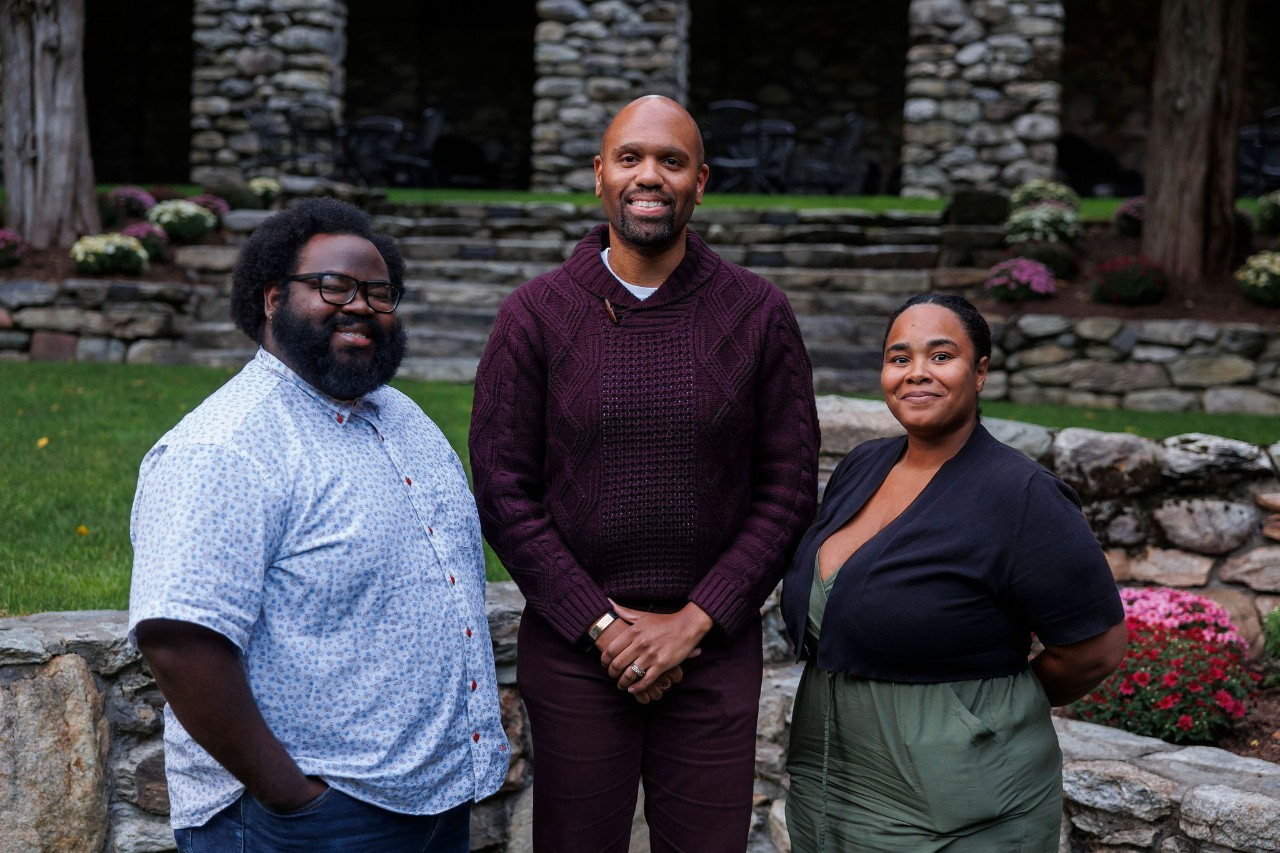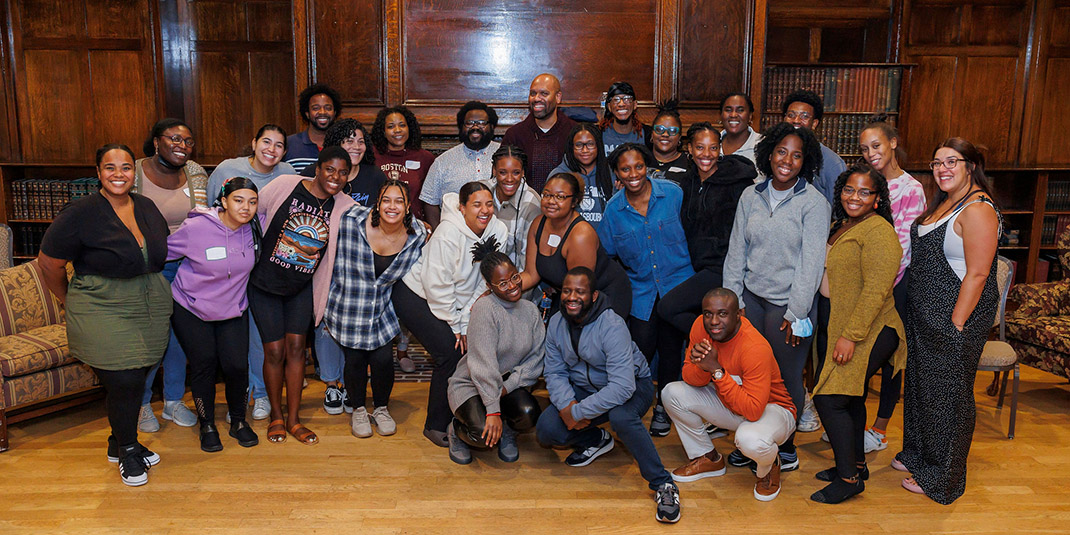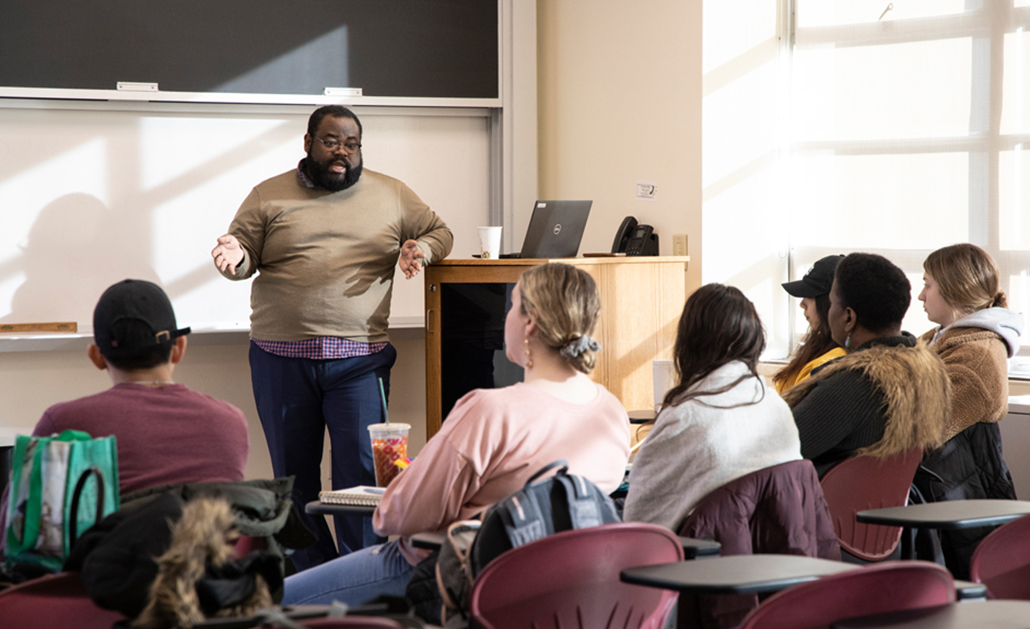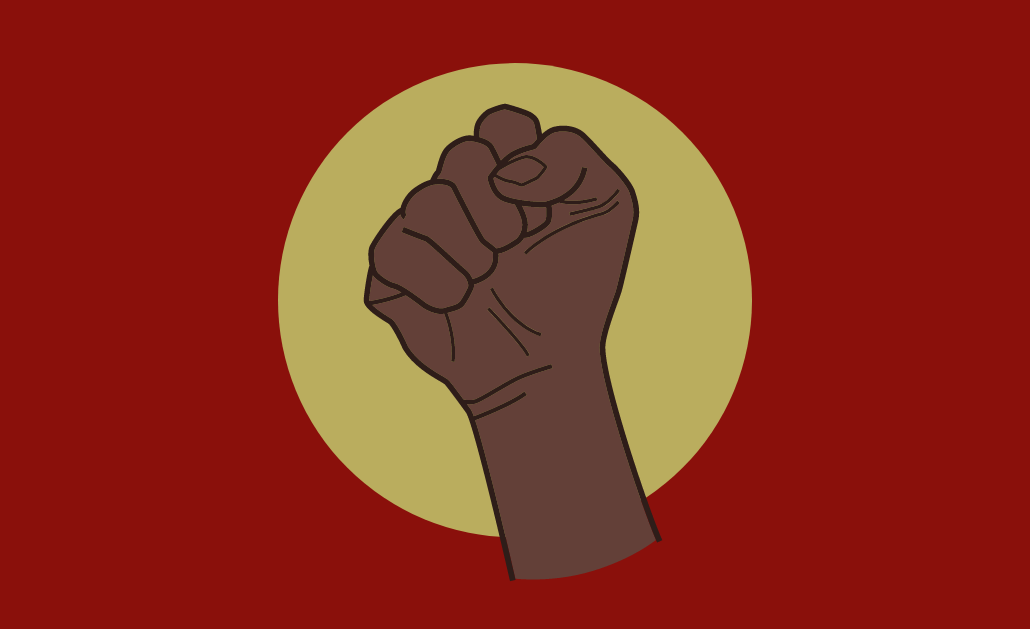
In this file photo, members of the Black Leadership Initiative pose for a group photo at the BLI Summit in October 2022. Photo by Tim Correira.
The Black Leadership Initiative at the Boston College School of Social Work will host an all-day conference in Corcoran Heights on April 27, convening social workers, artists, and mental health advocates to discuss culturally responsive strategies for supporting the health and wellness of people in the African diaspora.
Guest speakers at the Black Mental Wellness Symposium will include Jerome Schiele, professor and chair of the Ph.D. department in the School of Social Work at Morgan State University; Sean (Truth) Evelyn, a spoken word artist who works with young adults who have been formerly incarcerated; and Nieisha Deed, the founder and CEO of PureSpark, an organization dedicated to removing the stigma of mental illness in the Black community.
BLI Program Coordinator Lujuana Milton will be among the BCSSW-affiliated speakers at the conference, which was made possible by an $8,000 grant from BC’s Institute for the Liberal Arts.
“Black mental wellness has been significantly impacted by the effects of the historical and generational experiences of many Black people and African Americans, characterized by physical and emotional trauma as well as acts of violence they experience on a daily basis,” said Milton, BA’06, MSW’07, who played a leading role in organizing the event. “The Black Mental Wellness Symposium was created to uplift the Black community within Boston College and the Greater Boston area by bringing in presenters to share their knowledge of healing and wellness practices that center the experiences of Black and African American people.”
The focus of the symposium aligns with the mission of the BLI, a cohort-based program that prepares social workers to develop a nuanced understanding of the challenges facing Black communities in Boston and beyond. Students in the program take courses that center the Black experience, complete internships that support the Black community, and participate in monthly meetings that prioritize both the body and the mind.
BLI co-founders Samuel Bradley, Jr. and Tyrone M. Parchment said that both the symposium and the BLI put a premium on taking an Afrocentric approach to social work practice, focusing on the cultural experiences and values that connect people of African descent.
“The symposium aims to provide participants with a well-rounded perspective on supporting Black communities’ well-being,” said Parchment, an assistant professor who studies the behavioral health of families. “Whether they implement it for themselves, their clients, or the communities they serve, this symposium will provide folks with holistic, African-centered, evidence-informed, and life-giving ways of thinking about well-being.”
“For so long, pedagogy in social work education has been very focused on methods, models, and tools that have not been culturally appropriate for Black communities,” added Bradley, an assistant professor who studies equity in the workplace. “It’s going to take some time to impact the culture of practice out there, but hopefully this is the start of more to come.”

From left to right: Samuel Bradley, Jr., Tyrone M. Parchment, and Lujuana Milton. Photo by Tim Correira.
The symposium, which is free and open to students, faculty, staff, alumni, and community members, will be divided into three parts. Schiele, whom Bradley described as “one of the godfathers of the Afrocentric approach to social work,” will give a virtual keynote talk titled “Nurturing Black Wellness: The Significance of the Afrocentric Paradigm.”
Four social workers and mental health advocates—Deed and Evelyn, as well as Albert Pless, director of the Office of Equity and Social Justice for the town of Reading, Massachusetts, and Melissa Wood Bartholomew, MSW’17, Ph.D.’20, associate dean for diversity, inclusion, and belonging at the Harvard Divinity School—will participate in a moderated panel discussion titled “Black Mental Wellness: Reclaiming Healing as an Act of Liberation.”
Other experts will host three concurrent workshops focused on culturally congruent strategies for improving the mental wellness of people in the African diaspora. Vanessa Benzan-Monteiro, a clinical social worker who founded gatHer & Heal to provide therapy to Black women, will facilitate a workshop, “Embodiment Beyond Talk Therapy,” focused on helping participants deepen the connection between their mind, body, and emotions.
Morgan Breon, an actress, playwright, and social worker who founded Heal.Be.Live., an organization that uses art to start difficult conversations, will host a workshop titled “The Danger of Hope: Using Creative Methods for Emotional Processing.” The workshop will incorporate clips from a one-person stage play, also called The Danger of Hope, that depicts the trauma-infused lives of Black high school students in under-resourced communities.
Milton and Kaila Atkins, MSW’23, a clinician at South Shore Child and Family Counseling, will team up to facilitate a workshop titled “Afrocentric Wellness: A Culturally Grounded Method of Liberation.” Milton said this workshop will identify culturally congruent healing strategies rooted in the Afrocentric values of Ma’at and Nguzo Saba, including moving one’s body, making music, and engaging with one’s community.
Bradley acknowledged Milton for organizing the symposium and managing the BLI, saying he’s “incredibly proud” of her for her commitment to the School.
“Her leadership has continued to guide us through the inception and growth of the Black Leadership Initiative,” he said. “I don’t know where we’d be without her, quite frankly. So, I think this is just as much an alumni success story as it is about the future of Black leadership here in the social work community in Boston.”




